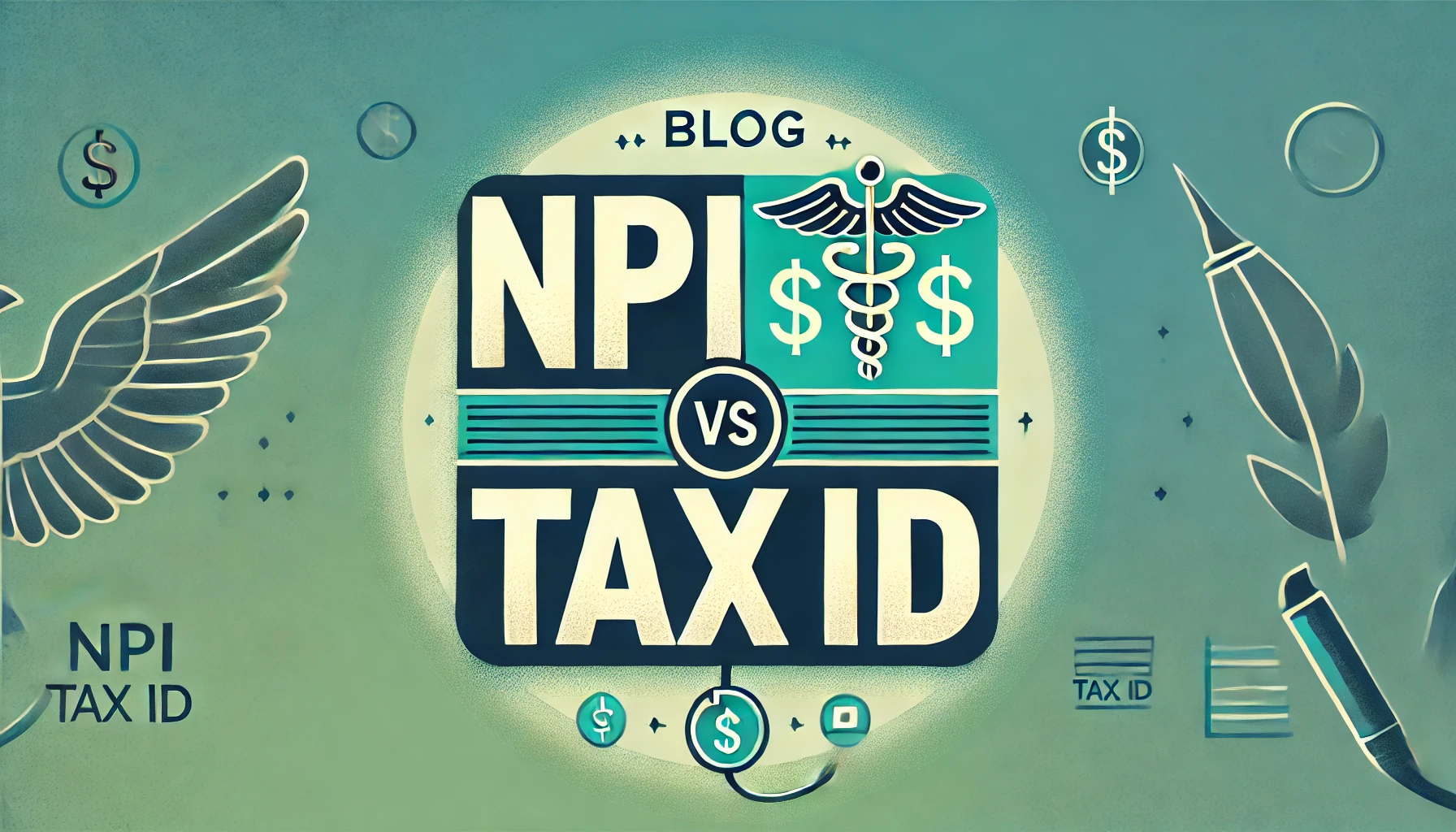Complete Guide to CPA Charge for Amended Tax Return
Explore our definitive guide on amended tax returns and the importance of hiring a CPA for accurate preparation. Understand the factors affecting CPA charges, from return complexity to necessary forms.
Abhinil Kumar
Author

Explanation of amended tax returns
An amended tax return, also known as IRS Form 1040-X, is a way for taxpayers to correct mistakes made on their federal tax return. It allows individuals to reconcile errors made in the initial filing process, such as incorrect filing status, omitted income, or erroneous deductions or credits.
To be eligible for filing an amended return, certain criteria must be met. Firstly, the amended return must be filed within three years from the original filing deadline or within two years from the date the tax was paid, whichever is later. Secondly, the taxpayer must have already filed a federal tax return before considering the amendment.
An amended return is typically filed to rectify specific errors. These can include mistakes related to income, such as failing to report all sources of income, or errors in deductions and credits, such as miscalculating the value of certain deductions. Additionally, changes can be made to the filing status, such as mistakenly filing as single when married, and jointly filing should have been chosen.
One key benefit of filing an amended return is the potential to claim a refund. If the amendments lead to a decrease in tax liability, the taxpayer may be entitled to a refund of the excess amount previously paid. Conversely, if the amended return results in an increase in tax liability, the taxpayer will be required to pay the outstanding balance.
Importance of hiring a CPA for tax return preparation
Tax return preparation is a crucial task that individuals and businesses have to undertake every year. It can be a complex and time-consuming process that requires a deep understanding of tax laws and regulations. This is where hiring a Certified Public Accountant (CPA) becomes essential.
One of the key reasons for hiring a CPA for tax return preparation is the expertise they bring to the table. CPAs are highly trained and knowledgeable professionals who have extensive experience in tax matters. They stay updated with the ever-changing tax laws and regulations, ensuring that their client’s tax returns are prepared accurately and in compliance with the latest requirements.
Tax season can be an extremely stressful time for many people. The pressure of meeting deadlines, gathering relevant documents, and navigating through complex tax codes can be overwhelming. By hiring a CPA, individuals and businesses can alleviate this stress. CPAs have the expertise and experience to handle all aspects of tax return preparation efficiently, allowing their clients to focus on other important matters.
Accuracy is of utmost importance when it comes to tax return preparation. Even a minor mistake or oversight can lead to penalties, audits, or even legal consequences. CPAs are well-versed in tax regulations and know which deductions and credits are available to their client’s specific situations. They have the necessary skills to ensure that all calculations are accurate and that all necessary forms and schedules are completed correctly.
Furthermore, hiring a CPA helps ensure compliance with tax laws. Tax regulations can be complex and vary based on the jurisdiction and the type of entity involved. A CPA can navigate through this complexity and ensure that all necessary forms and schedules are submitted accurately and on time. They can also provide expert advice on tax planning strategies that can help minimize tax liability while staying within the boundaries of the law.
Factors Influencing CPA Fees
Several factors influence the fees charged by Certified Public Accountants (CPAs). These factors can vary depending on the location, size and complexity of the client’s business, the services required, the CPA’s level of experience and expertise, and the overall market conditions. Understanding these factors is crucial for businesses and individuals seeking accounting services, as it allows them to have a better understanding of the range of fees they may encounter when engaging a CPA. In this article, we will explore the main factors that influence CPA fees, providing insights into the different considerations that affect the cost of accounting services.
Complexity of the Amended Return
The complexity of an amended tax return arises from several factors, including changes to the initial return, the need for additional documentation, and potential adjustments to tax liabilities. Understanding these factors is crucial to accurately completing the process.
One primary reason for filing an amended return is to correct errors or omissions made on the original return. Many different types of errors can occur, such as mathematical mistakes, incorrect filing status, omitted income, or missed deductions or credits. Additionally, new information may become available after filing the original return, such as revised income statements or updated eligibility for certain deductions or credits. Form 1040-X is used to correct these errors and provide the correct information to the Internal Revenue Service (IRS).
Completing Form 1040-X requires specific attention to detail and may require additional documentation. For example, if the amended return involves correcting income or deductions, supporting documents such as updated W-2 forms, 1099 statements, or receipts may be required. So that you know that any changes made to the original return must be clearly explained and supported where necessary.
Filing an amended return is subject to time limitations. Generally, an amended return must be filed within three years from the original return’s due date or within two years from paying the tax, whichever is later. Please file within this time frame to avoid the loss of any potential refunds or credits.
Number of forms to be filled out
There are a total of four forms that need to be filled out:
1. Application Form:
Purpose: The application form collects the personal details and contact information of the individual applying for a specific program or job. It also allows applicants to provide information about their qualifications and experience relevant to the application. The purpose of this form is to assess the suitability of candidates and determine their eligibility for further consideration.
Requirements: The application form typically requires applicants to fill in their name, address, contact details, educational background, work experience, and any additional information requested by the organization or program. Applicants may also be required to submit supporting documents such as a resume, cover letter, or academic transcripts.
2. Medical History Form:
Purpose: The medical history form aims to gather comprehensive information about an individual’s medical background. It helps healthcare professionals assess a person’s health condition, identify any risk factors, and provide appropriate care or treatment.
Requirements: The medical history form generally requests information related to past and current illnesses, surgeries, medications, allergies, family medical history, and lifestyle habits. It may also require individuals to disclose any specific health conditions or concerns they may have.
3. Consent Form:
Purpose: The consent form ensures that individuals have granted their permission for a specific action or procedure. It ensures transparency and protects the rights and privacy of individuals involved.
Requirements: The consent form typically includes a brief description of the action or procedure, its potential risks and benefits, alternatives available, and space for individuals to provide their signature indicating their informed consent.
4. Feedback Form:
Purpose: The feedback form allows individuals to express their opinions, suggestions, or criticisms about a particular service, event, or experience. It helps organizations gain valuable insights to improve their offerings and meet customer expectations.
Requirements: The feedback form usually consists of a series of questions or prompts covering various aspects of the service or experience. Participants can provide their feedback by selecting options, rating their experience, or providing written comments.
Time Required for Preparation
The time required for tax preparation varies depending on the complexity of the individual or business tax situations. Several tax forms need to be completed, and each form requires a certain amount of time to fill out accurately.
For individual tax returns, the most common form is the 1040. This form includes all the individual’s income, deductions, and credits. On average, a certified public accountant (CPA) charges around $150 to $450 per hour for tax preparation services. A relatively simple 1040 form may take a couple of hours to complete. However, if the individual has multiple sources of income, itemized deductions, rental properties, or other complexities, it could take significantly longer.
Another important tax form is Schedule C for small business owners or self-employed individuals. This form requires the reporting of business income and expenses. The average hourly fee for preparing a Schedule C ranges from $200 to $500. The time required to complete this form depends on the level of organization of the business owner’s records. If the records are well-organized and all the necessary information is readily available, it could take around 4 to 8 hours. However, if the records are disorganized or incomplete, it could take much longer, resulting in additional hourly fees.
In addition to the 1040 and Schedule C, other forms may be required based on a taxpayer’s circumstances, such as the 1099 for income from investments or self-employment, the Schedule E for rental properties, and the 1120 for corporate tax returns. Each of these forms adds to the time required for tax preparation and can increase the average hourly fees charged by a CPA.
Hourly rates charged by CPAs
Hourly rates charged by Certified Public Accountants (CPAs) vary depending on the level of experience and expertise. The rates are typically categorized based on the position held within the accounting firm, such as Principal CPA, CPA Associate, Staff Accountant, and Bookkeeping/Administration.
The hourly rate for a Principal CPA, who is the most senior and experienced member of the firm, is generally the highest. They often have advanced degrees, extensive experience, and specialized knowledge in various accounting fields. Consequently, their hourly rate reflects their expertise and is usually higher than that of other professionals within the firm.
The CPA Associate, on the other hand, is a mid-level professional who has passed the CPA exam and has gained a significant amount of experience. Their hourly rates are generally lower than those of a Principal CPA but higher than those of a Staff Accountant.
Staff Accountants, as entry-level professionals, have lower hourly rates compared to the more experienced CPAs. They have typically completed their undergraduate accounting degrees and are working towards obtaining their CPA license. Their hourly rates reflect their position as less experienced professionals within the firm.
Bookkeeping and administrative tasks within an accounting firm are typically handled by individuals with different skill sets and qualifications. They may not necessarily hold a CPA license, but they are essential in providing support services to the CPAs. Therefore, their hourly rates are usually lower than those of CPAs and are set at a separate rate.
It is important to note that certain services provided by CPAs, such as the preparation of quarterly estimated tax payments, responses to government notices, year-end tax planning and projections, and audit representation, are charged at the standard hourly rate. These services often require specialized knowledge and expertise, which leads to the standard hourly rate being applied for more complex tasks.

Estimated time needed for an amended return
When it comes to filing taxes, accuracy is key. However, there are instances when a taxpayer may need to amend a previously filed tax return. This could be due to discovering errors, omissions, or changes in personal or financial circumstances. While filing an amended return may seem daunting, understanding the estimated time needed for this process can help taxpayers plan accordingly. In this article, we will explore the factors that can impact the time required for an amended return and provide some helpful insights for those navigating this often complex task.
Experience and Qualifications of the CPA
The Certified Public Accountant (CPA) that I am recommending has a wealth of experience and qualifications in tax preparation. With an extensive background in accounting and tax planning, this CPA is well-equipped to handle even the most complex tax situations.
Having worked in the field for over 10 years, the CPA has gained invaluable expertise in tax preparation. They have successfully assisted numerous clients in minimizing their tax liabilities and maximizing their returns. Their in-depth knowledge of the ever-changing tax laws enables them to navigate through the intricate tax code with ease.
To further enhance their credibility, this CPA holds various certifications and professional affiliations. They are a member of the American Institute of Certified Public Accountants (AICPA) and the state CPA society. These affiliations demonstrate their commitment to upholding the highest standards of accounting and tax practices.
In terms of experience, this CPA has handled a wide range of tax returns, including individual, corporate, and partnership tax filings. They are well-versed in both federal and state tax laws, having worked with clients across multiple states. Their familiarity with different state tax regulations ensures that they can accurately file tax returns and take advantage of any available tax benefits.
How does the level of experience impact fees
The level of experience plays a crucial role in determining the fees charged by professionals across various industries. Experience encompasses factors such as expertise, reputation, and demand, all of which significantly impact the fees charged by individuals.
Firstly, expertise is a key factor that affects fees. Professionals who have acquired extensive knowledge and skills through years of work experience are often able to provide higher-quality services. Clients highly value this level of expertise, and it allows experienced professionals to command higher fees. For example, a lawyer with several years of courtroom experience will likely charge higher fees than a newly qualified lawyer.
Additionally, reputation also influences fees. Professionals who have successfully built a strong reputation over time through their expertise and positive track record tend to charge higher fees. A positive reputation acts as a testament to the level of experience and quality of service provided, which attracts clients willing to pay a premium for the assurance of working with a reputable professional.
Moreover, demand plays a significant role in determining fees based on experience. As professionals gain more experience and establish themselves in their respective fields, their demand tends to increase. This increased demand allows experienced professionals to set higher fees due to the limited availability of their services. Clients are often willing to pay more for experienced professionals with a proven track record of delivering results.
Importance of hiring a qualified professional
Hiring a qualified professional is of utmost importance when it comes to undertaking any project or task. These individuals possess the expertise, skills, and industry knowledge that are essential for ensuring the successful completion of the endeavour. While some may argue that non-professionals can also handle certain tasks adequately, the value that a qualified professional brings to the table through their specialized training and experience cannot be overlooked.
First and foremost, a qualified professional possesses the necessary expertise required to excel in their field. They have undergone extensive education and training in their respective areas, enabling them to acquire in-depth knowledge and understanding of the subject matter. This expertise enables them to analyze and solve complex problems more effectively, as they have a solid foundation of knowledge to draw upon. Additionally, their expertise allows them to stay updated with the latest developments and advancements in their field, ensuring that they are equipped with the most cutting-edge techniques and strategies.
Furthermore, a qualified professional possesses a set of essential skills that are crucial for the successful execution of a project or task. These skills are honed through years of practice and experience, enabling them to perform their duties with precision and efficiency. For example, a qualified accountant possesses the necessary skills to navigate through complex financial matters, analyze data accurately, and provide valuable insights for decision-making. Similarly, a qualified architect possesses the skills required to design aesthetically pleasing and structurally sound buildings. These skills are developed through years of hands-on experience, enabling professionals to deliver high-quality results.
In addition to their expertise and skills, a qualified professional possesses industry knowledge that is invaluable to the success of a project or task. They are well-versed in the latest trends, regulations, and best practices within their industry, allowing them to adapt and implement strategies that align with the current landscape. This industry knowledge enables professionals to identify potential risks and challenges early on, mitigating them effectively and ensuring that the project stays on track.
The value that a qualified professional brings to a project or task must be considered. Their specialized training and experience allow them to see the bigger picture and make informed decisions. They have a deep understanding of the nuances and intricacies of their field, enabling them to provide innovative and creative solutions that non-professionals may need to pay more attention to. Moreover, their expertise and skills enable them to work efficiently, saving both time and resources.
Average Costs of Amended Tax Returns
National Averages for CPA Fees
National Averages for CPA Fees provide valuable insights into the costs associated with tax preparation services. These averages serve as a benchmark for individuals and businesses to gauge the fair market value of hiring a Certified Public Accountant (CPA) for their tax needs.
Several factors influence the cost of tax preparation by a CPA. Firstly, the complexity of the tax situation plays a significant role. If an individual or business has intricate tax requirements, such as multiple sources of income, investments, or ownership of foreign assets, the CPA may need to spend more time analyzing and preparing the necessary documentation, consequently raising the fees.
Another critical factor that affects CPA fees is the type of tax return being filed. Different tax forms have varied levels of complexity. For instance, filing a simple Form 1040 with no additional schedules or deductions typically incurs lower fees compared to filing a Form 1120S for an S Corporation or a Form 1065 for a partnership.
Furthermore, the volume and organization of financial records impact the cost of tax preparation. Clients who provide well-organized and complete documentation to their CPA enable a smoother and more efficient process, potentially reducing fees. In contrast, clients with incomplete or disorganized records may require additional time and effort from the CPA, resulting in higher fees.
Additionally, the experience and expertise of the CPA influence their fees. CPAs with extensive knowledge and a proven track record in specialized areas, such as international taxation or corporate tax planning, often charge higher fees due to their unique skillset and the demand for their services.
Location is another factor to consider. CPA fees may vary significantly depending on the region or city where the services are provided. Higher living costs and differences in market demand can influence the local average fees charged by CPAs.
Lastly, the level of service required by the client can impact the cost of tax preparation. Some clients may only require basic tax preparation, while others may require additional services like tax planning, audits, or representations before tax authorities. Each additional service adds to the complexity and time required, consequently affecting the overall fees charged by the CPA.
Comparison to original return preparation costs
The original return preparation costs detailed in the Background Information primarily focused on the basic tax return, which is typically applicable for individuals who do not have significant investment income, self-employment income, or complex tax situations. This type of return is typically filed using Form 1040EZ or Form 1040A, and the average price for preparing such returns typically ranges from $50 to $150, depending on the complexity and expertise of the tax professional.
However, the Next Heading suggests a comparison between these original return preparation costs and the costs associated with more complex tax returns. For individuals with investment income, self-employment income, or other complicated tax situations, the corresponding forms required for filing tax returns become more intricate. These forms may include the standard Form 1040 or even additional schedules and forms such as Schedule C for reporting self-employment income, Schedule D for capital gains and losses, or Schedule E for rental income.
As the complexity of the tax return increases, so does the average price charged for the preparation of these returns. Generally, tax professionals may charge anywhere from $200 to $500 to prepare tax returns that involve these additional forms and schedules. The specific price will depend on various factors, such as the intricacy of the tax situation, the level of expertise required, and the geographic location.
It is important to note that the average price mentioned above is a general estimate, and individual tax professionals may have different pricing structures based on their experience and the specific needs of their clients. Furthermore, during tax seasons, when tax professionals tend to be more in demand, prices may increase due to higher workload and limited availability.


